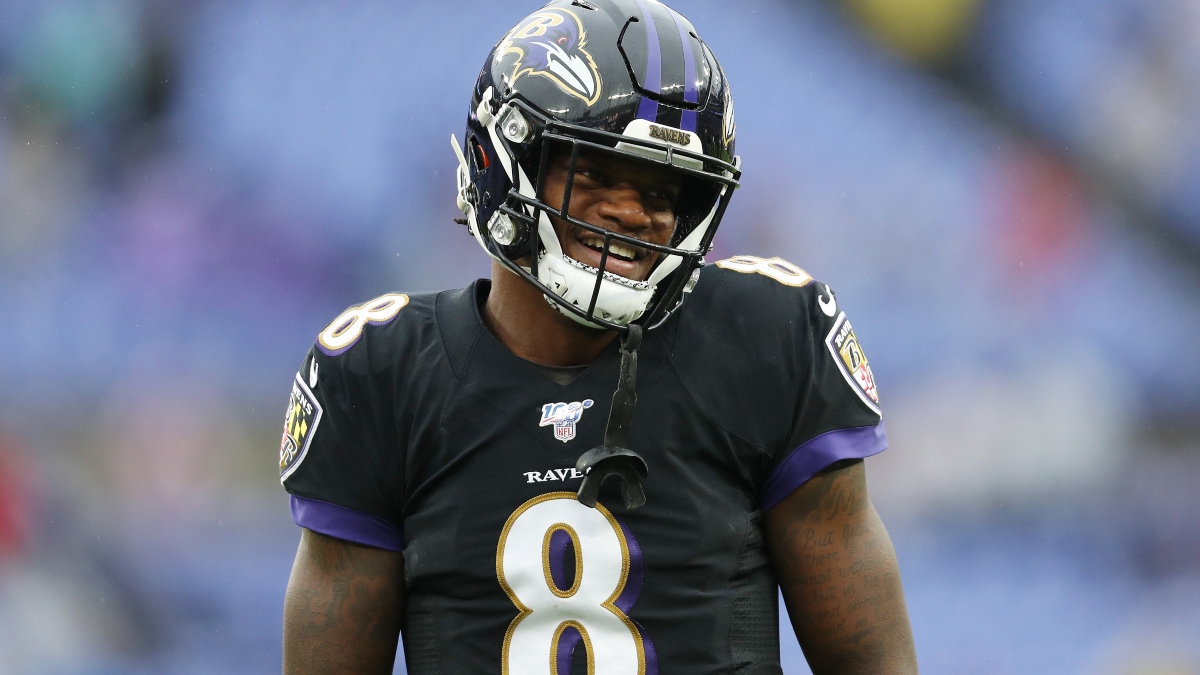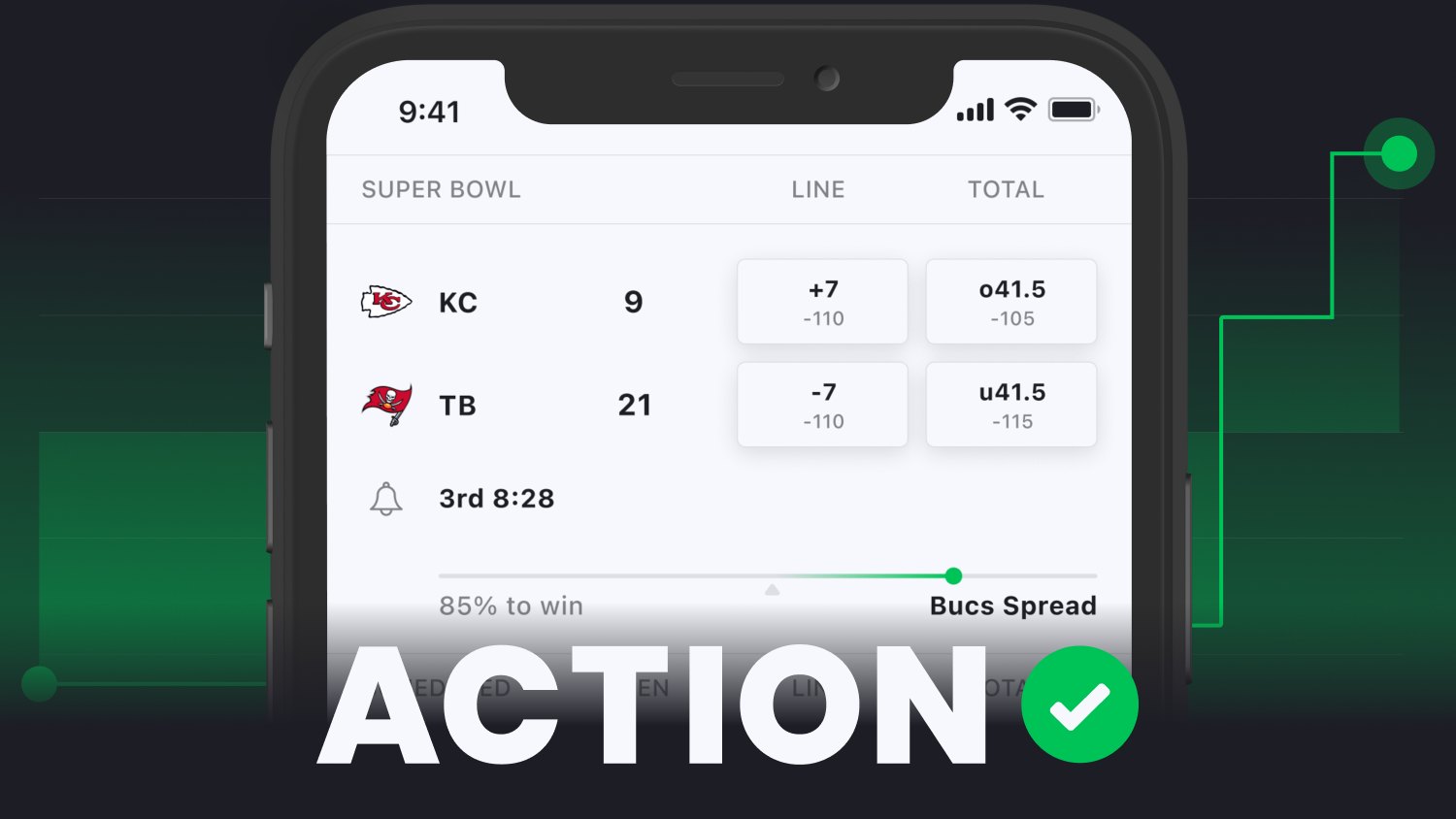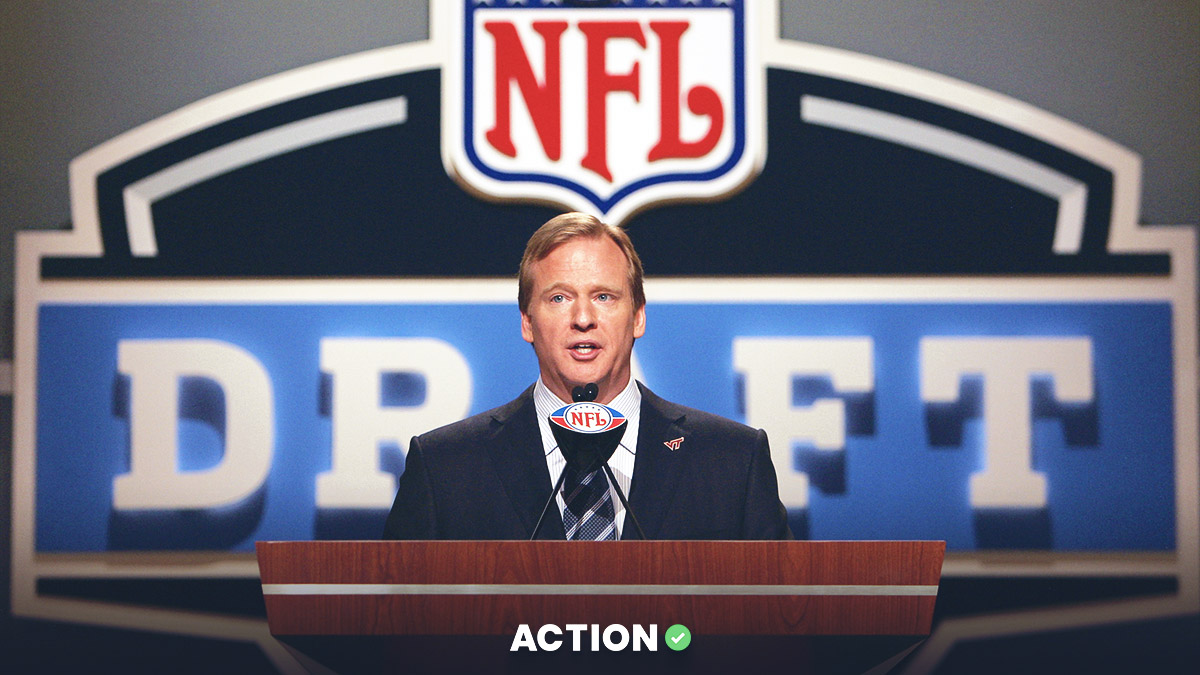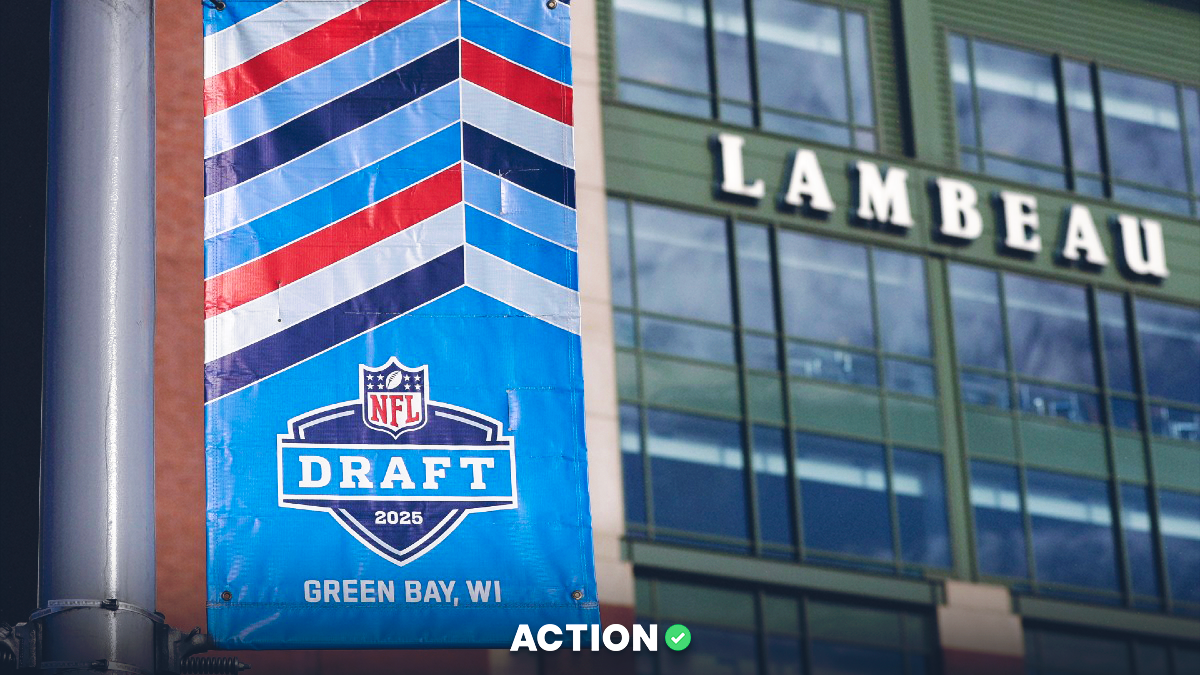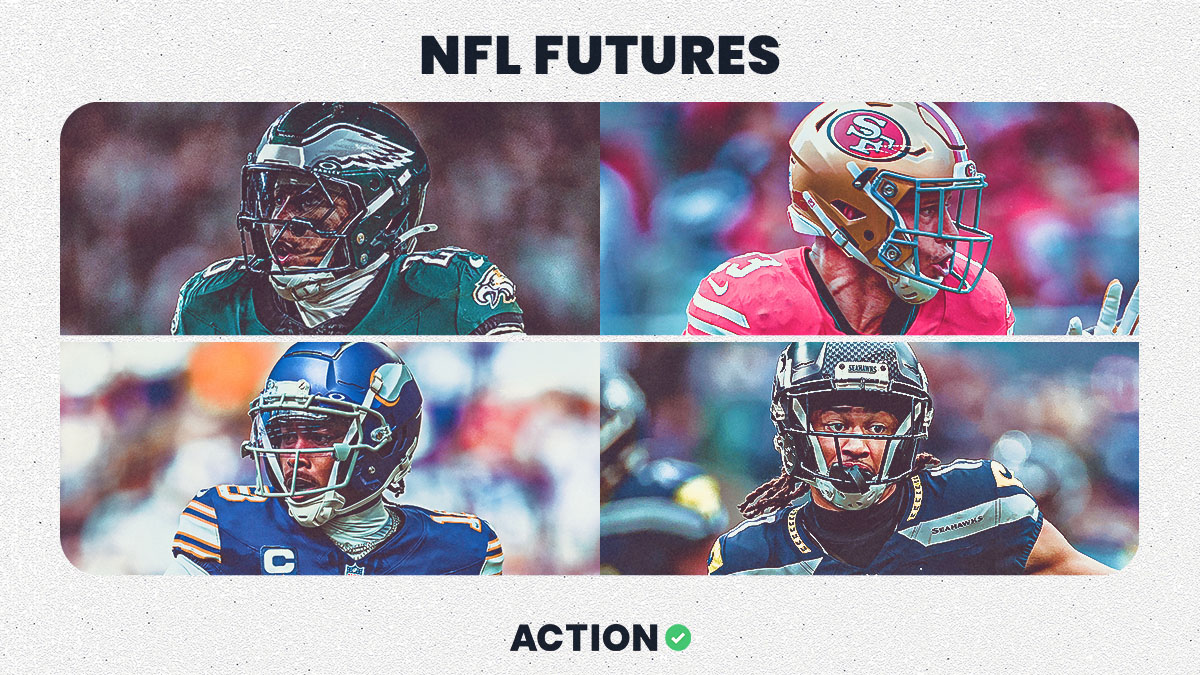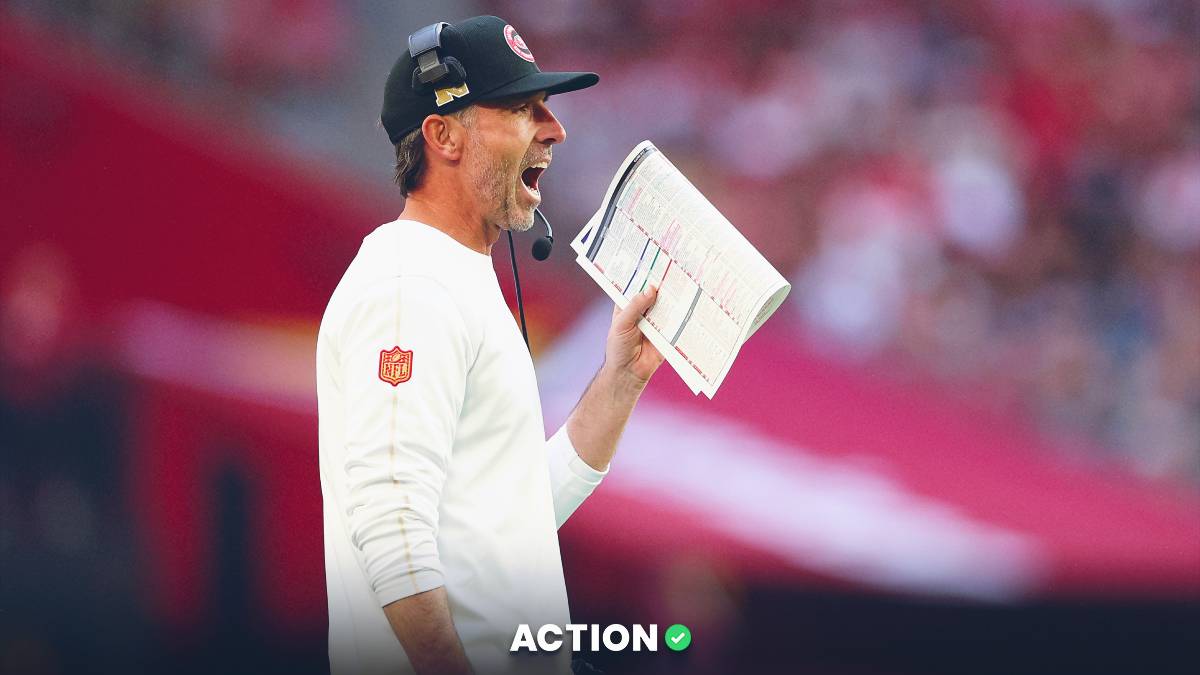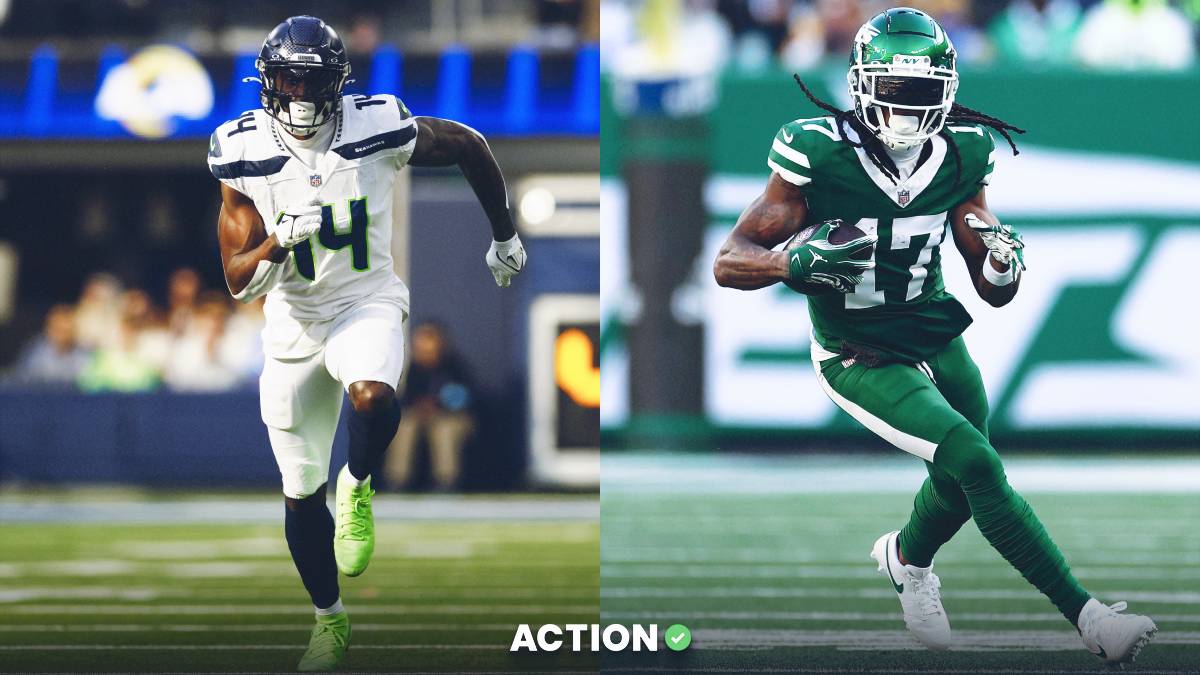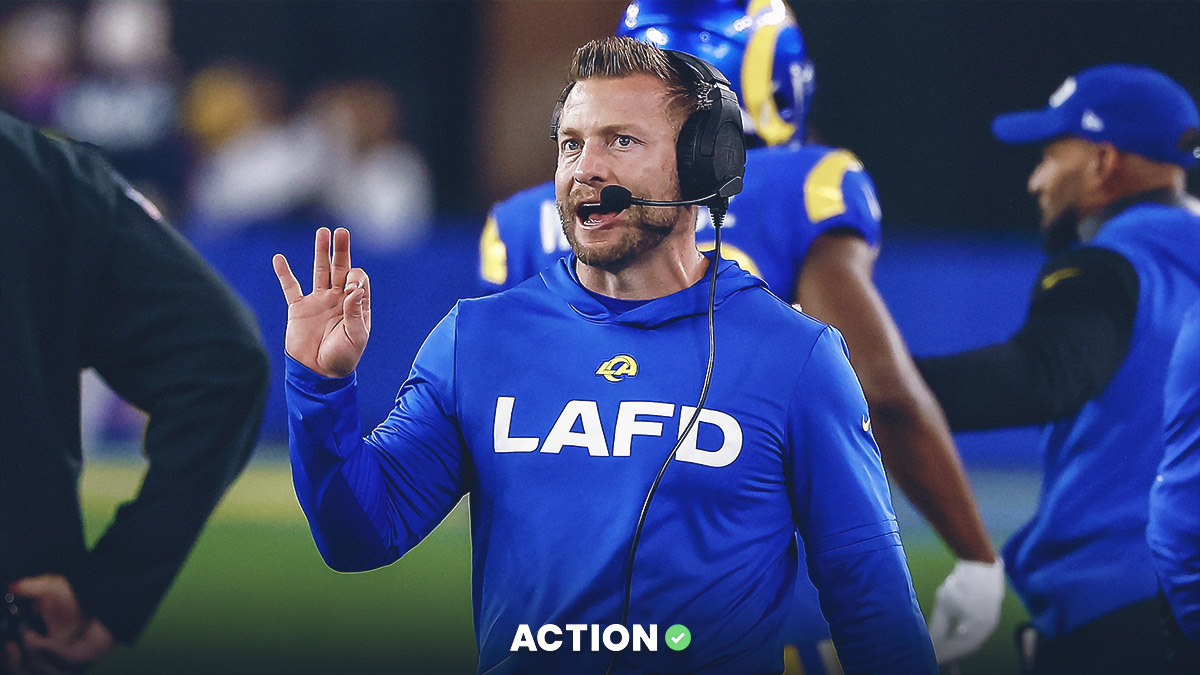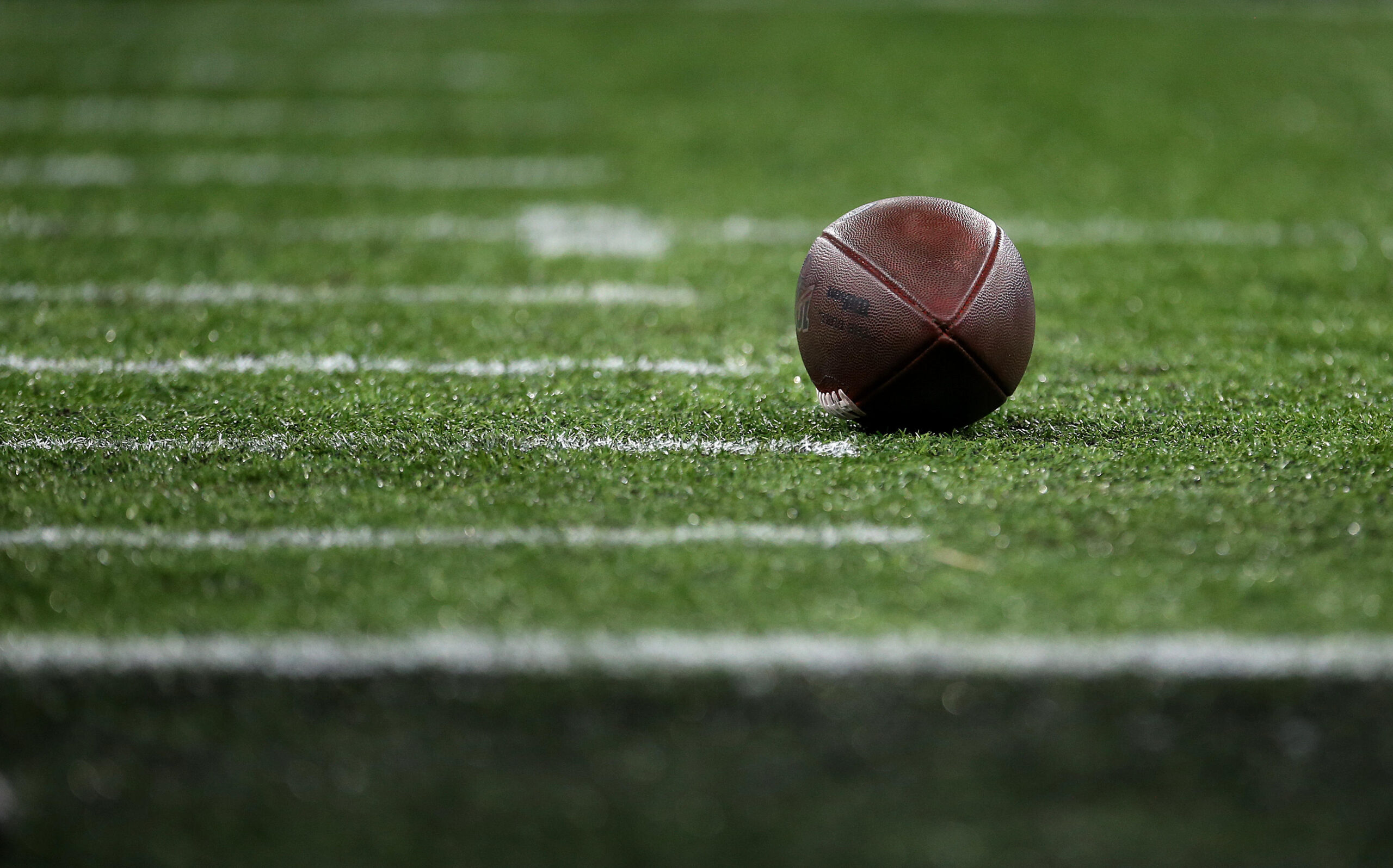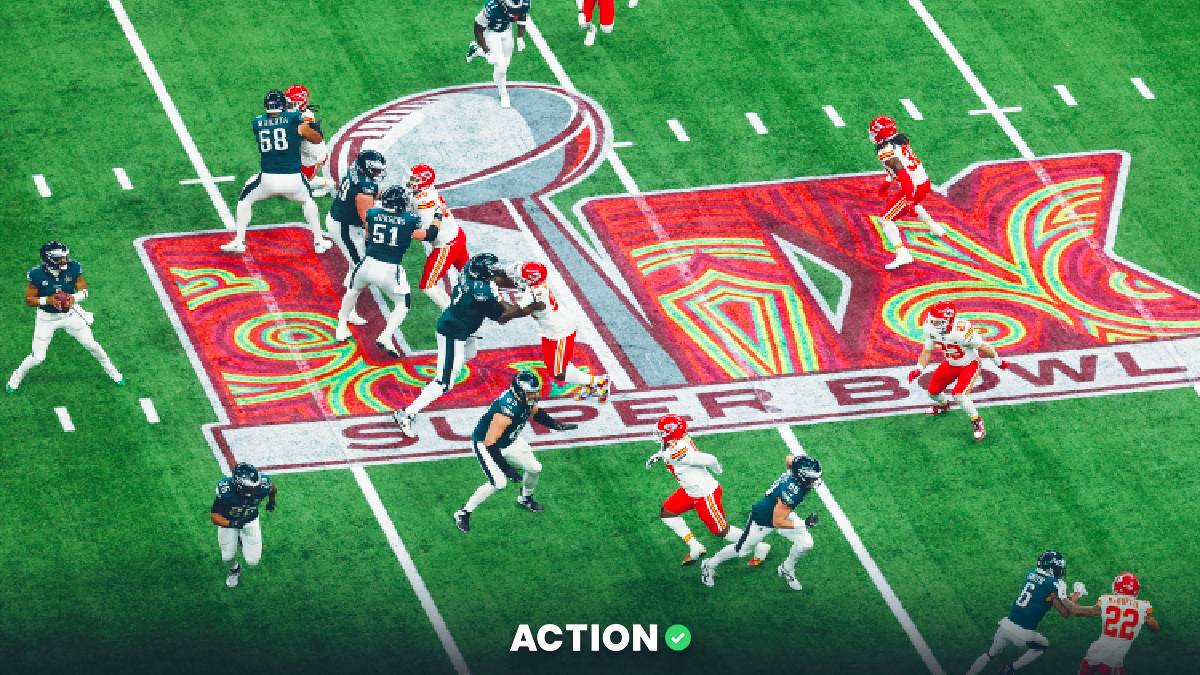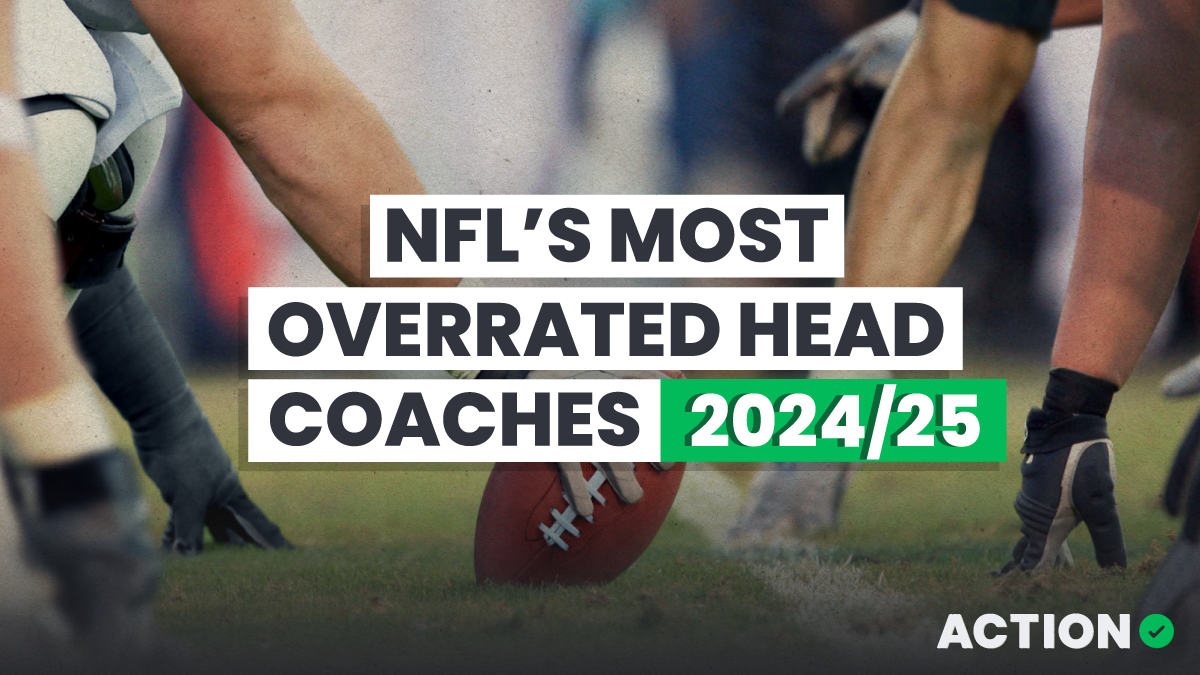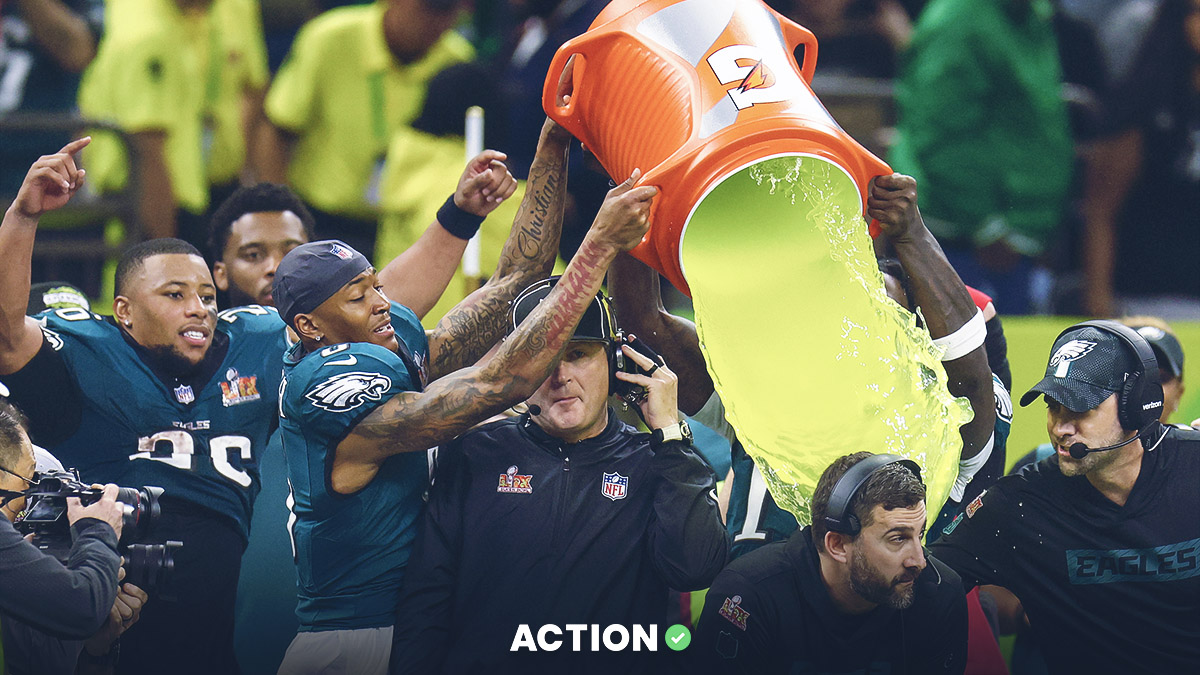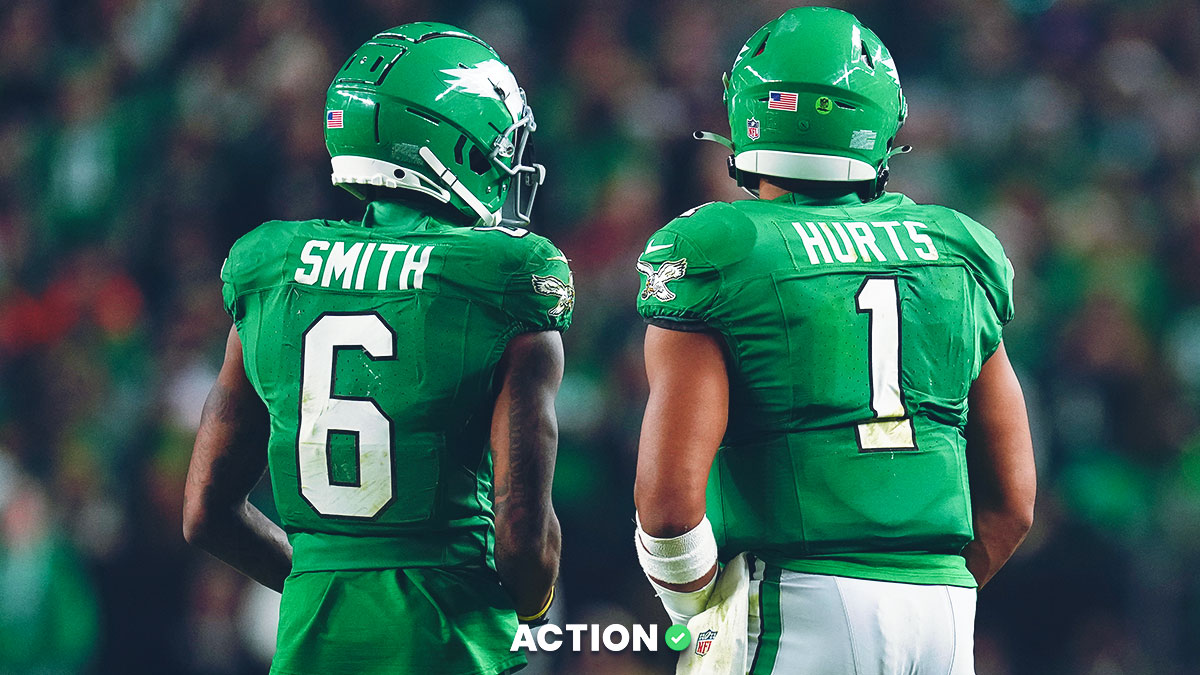So you want to win NFL MVP? Great, here are a few questions.
- Are you a quarterback?
- Could your team be the best in the league, or very close?
- Can you put up a huge statistical profile and be "the main reason" your team was that good?
If the answer is yes to all three, you've got a chance.
Awards are fun betting markets because they're somewhat subjective and narrative-driven. However, NFL MVP is probably the least subjective, as it's more about team performance and player stats.
Below I'll dive into previous winners, their statistical and narrative profiles, and much more, to help you make better decisions when betting subjective futures like this.
The Definition
The official definition: MVP is "presented annually by the Associated Press (AP) to a player in the NFL deemed to have been the "most valuable" in that year's regular season."
Most valuable is always a sticky debate. Some people believe valuable means the most irreplaceable player — aka their team would suffer the biggest drop without them. Others believe it means the best player.
MVP has typically gone to the best players.
That leads to our definition: "NFL MVP is given to the quarterback on the team with the best record, provided he's the primary reason that team was so good."
The Previous Winners
The previous winners are players you'd expect — high-profile quarterbacks on great teams.
But we've had some longshot winners because those quarterbacks weren't necessarily high-profile prior to the season they won.
In Patrick Mahomes' first year as a starter, he won MVP. The same happened with Lamar Jackson. They were priced longer than you would think as Jackson opened at 100-1 and was eventually bet down to around 40-1.
Cam Newton and the Panthers (5-8-1) weren't great the year before he won. The Falcons were 8-8 and Matt Ryan had 21 touchdowns to 16 interceptions before he won.
The Positions
Does the award gravitate toward a certain position?
This is a quarterback award, unless a running back posts an insane season.
Here's the positional breakdown all-time, and since 2000.
The last time a non-QB or RB won was Lawrence Taylor in 1986. Kicker Mark Moseley won in the strike-shortened 1982 season, which is hilarious. DT Alan Page won in 1971. Those are the only three non-quarterbacks or running backs.
A wide receiver has never won.
And 10 of the 18 running backs that did win happened before 1980.
It's a quarterback award.
The Voting
How does the voting work?
Who votes: A nationwide panel of media votes on the award. The NFL uses the AP's award as its official one, though several other outlets also give it out.
How many votes: Voters pick one player, so there are only 50 total ballots.
When do they vote? End of the regular season.
Any voting biases? It doesn't seem like it.
How many players get votes? Very few. Just 30 total players have received a vote in the past 10 years, and in many years, it's just two players. There isn't a ton of controversy around the winner.
The Narrative
Does a player need some "positive narrative" in their favor to win?
Not really. It's mostly about on-field performance.
The player doesn't have to be loved by the media. Nor does he need to have a feel-good story. Aaron Rodgers has won twice in a row after all.
The "carrying the team on his back" narrative can help a bit, if the perception is that the player brought the team much further than expected with little help around him.
Adrian Peterson for example helped get the Vikings to the postseason in 2012 with the second-most rushing yards ever in a season. Christian Ponder was their quarterback.
The Stats
What kinds of stats do voters care about?
Stats very much matter.
But the weird thing is that touchdowns (and TD/INT ratio) seem to matter the most.
Advanced stats like QBR seem somewhat predictive of the winner, but voters for most awards are focused on raw, easily-quantifiable stats like TDs and INTs.
Passing yards don't seem to matter quite as much either, as long as the quarterback is among the league leaders.
If the quarterback is a dual-threat, his passing stats don't need to be among the league leaders, but should be around the top 15.
When a running back wins, he has to do something absurd.
- Shaun Alexander set the single-season record for rushing TDs with 27 when he won in 2005.
- LaDainian Tomlinson broke it with 28 in 2006.
- Adrian Peterson finished a few years shy of the single-season rushing yards record in 2012.
The Team
Does the winner have to play for a good team?
Yep. The winner must play for a good team.
In fact, the winner usually plays for the best team in the league, or close to it.
The 2022 Candidates
This award is pretty cut-and-dry.
Make sure you're betting a quarterback who has a path to lead his team to one of the league's best records, all while putting up a strong statistical profile.
Here are the three criteria I'm looking at:
- Position: I'd only bet quarterbacks. There are too many good ones nowadays for a running back to swoop in and steal it.
- Win total: Does the player's team have a path to the best record in the league? Win totals are not gospel, but it should give you a good starting point. (But if you think the Jags can win 11 games, by all means bet Trevor Lawrence.)
- Stats: If everything goes really well, will that player have a statistical profile worthy of an MVP? You'd rather bet someone like Trey Lance or Justin Fields (mirroring a Lamar Jackson-like breakout) because they have the profile of players who can make big statistical leaps due to down-field passing ability and rushing ability. I don't feel the same way about Tua Tagovailoa. Not that either Fields nor Tua have a real shot to win.
Players to Watch
The favorites are the favorites for a reason. The quarterbacks on the best teams top the board, as they should.
After the first crop of quarterbacks, I'd look for the quarterback with the best price and highest upside.
That means there are really only a few names that stand out at their current prices.
- Lamar Jackson, 20-1. The Ravens should be much healthier this year and have a path to finish among the league's best teams — their win total is up to 10 at some books. Jackson can of course put up absurd numbers and he's got the "he-has-no-help-at-receiver" narrative already in his favor. I'd much rather take a shot on Jackson than Russell Wilson or Joe Burrow at their current prices.
- Trey Lance, 50-1. The good numbers on Lance are already gone — he opened 200-1 at some books — but he fits the Mahomes/Jackson profile, which we've seen win twice in the past five years. A modern, athletic quarterback with great supporting cast balls out in first year as a starter.
- Jameis Winston, 100-1. Winston was putting up a pretty nice season for the Saints (5-2 record, 14-3 TD/INT ratio) before he went down last season. New Orleans retained its offensive coordinator who has historically been pass-happy (until losing Winston last year) and the defense is still good.
Jalen Hurts would have been interesting at a longer price, considering his potential statistical profile and how easy the Eagles schedule is.
Best of luck hunting for value in these awards markets. Just don't bet any wide receivers. If Cooper Kupp didn't win last year, he never will.


